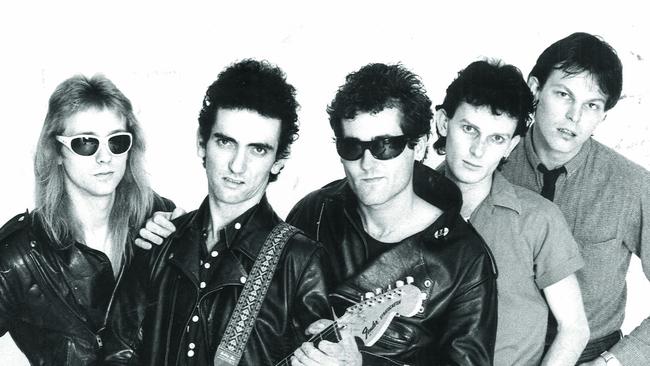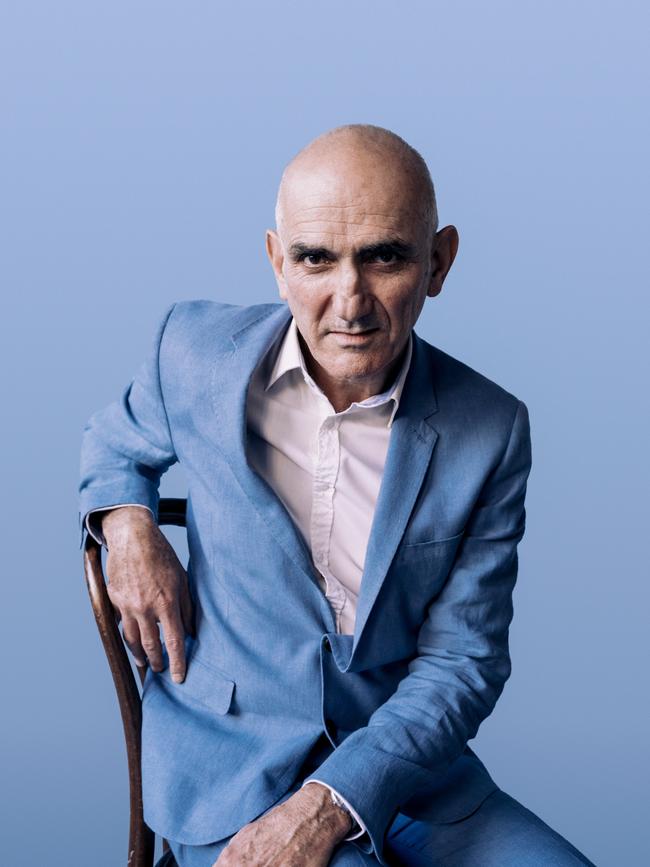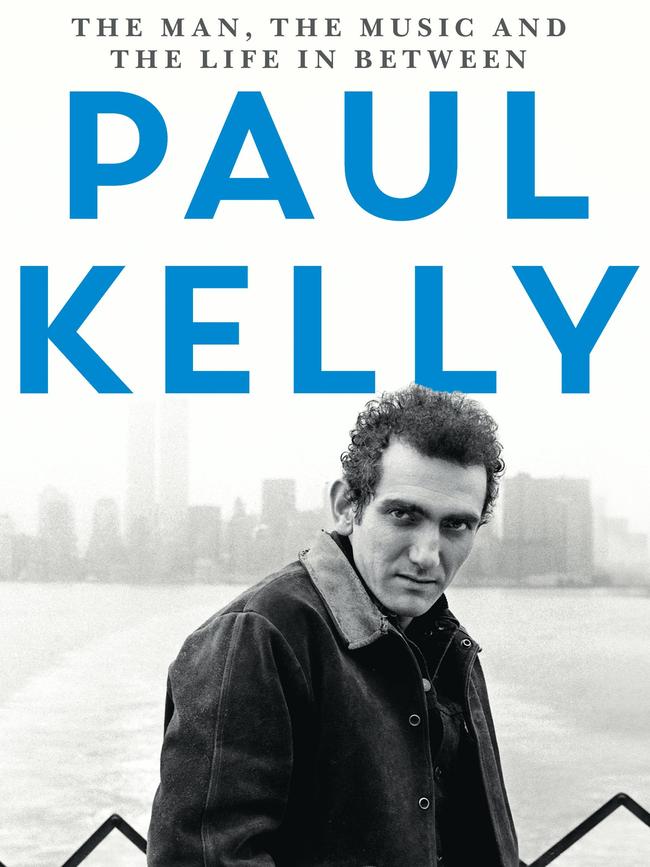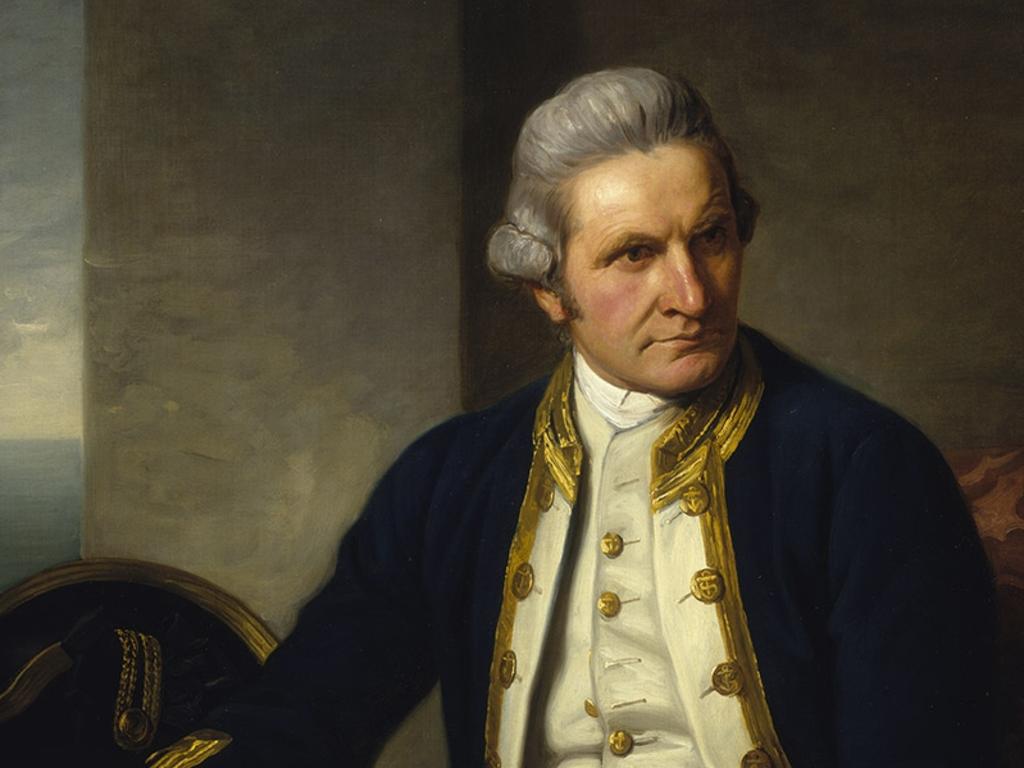Review, Stuart Coupe’s Paul Kelly: The Man, the Music and the Life in Between
Paul Kelly has done everything in his considerable power to scrub his first two albums from the historical record. But why? A new biography holds the answers.

The vast majority of Paul Kelly’s fans will die before they ever get a chance to hear his first two albums in full. The singer-songwriter’s 1981 debut Talk and its 1982 follow-up Manila — each recorded with his band The Dots — are long out of print in CD and vinyl form and are not available on any streaming service.
But for a handful of remnant clips and television performances from the era still extant on the world’s greatest music archive, YouTube, it’s as though Talk and Manila never existed at all.
And the most curious thing about this act of erasure is that it’s entirely self-driven.
As the owner of the rights to those songs, Kelly has done everything in his considerable power to scrub his first two albums from the historical record. But why? Plenty of artists are embarrassed about their early work. Such is the nature of growing up in public when you put your name to material that later feels dated and divorced from your current tastes and aspirations.
As detailed in Stuart Coupe’s extensive biography of one of the most popular Australian musicians working today, several of Kelly’s close friends and associates theorise that he has not just disowned but actively sought to destroy those early releases because they remind him of a painful and regrettable period of his life, where his heroin use was out of control.
As for Kelly himself? “Talk and Manila had a good run,” he tells the author of Paul Kelly: The Man, the Music and the Life in Between.
“They were available to buy for around 16 years but they didn’t sell. When I gained control of my work in the late 90s I simply chose not to make them available anymore. It wasn’t the fault of the bands on those records. It was me. I don’t like the songs or the singing on them. They’re embarrassing to listen to.”
Coupe puts it this way: Kelly wants the world to believe that his career began in Sydney with the 1985 release of his acoustic solo album Post, which contained From St Kilda to Kings Cross, among several other songs now regarded as classics of the songwriter’s extensive canon.

But the world doesn’t work that way. It doesn’t bend toward the will of the narrative that wants to be told. Instead the one that needs to be told usually emerges, often thanks to the hard work of skilled writers and historians.
If for no other reason than the fact Coupe deals in detail with this curious chapter, which might have otherwise been a footnote in the grand sweep of Kelly’s career, this book is highly recommended to anyone who has even fallen under the spell of one of his songs.
The author is interested in telling the whole story of “the man, the music and the life in between”, as the subtitle puts it, and it’s to his great credit that he manages exactly that.
Coupe has also gone one better than most music biographies, as he not only has the permission — the encouragement, even — of his subject, but he has extensive personal experience to draw from, as the author was Kelly’s manager for several years from 1984.
“Together Paul and I did good business,” Coupe writes in his introduction, before noting that when they stopped working together there was “no explosive break-up”.
“We both moved on. But we had little contact afterwards. Nothing personal. We lived in different cities by then and both lived frenetic lifestyles.”
In 2015, after writing an excellent biography of Mushroom Records boss Michael Gudinski, in which Kelly was a significant figure, Coupe began making overtures to Kelly’s manager, pitching the idea of a biography. Despite the initial reticence toward his former manager digging into his past, Kelly eventually came around, to Coupe’s surprise and joy.
Coupe’s plan was to give voice to all the creative individuals who have been part of the singer-songwriter’s musical world, and whose contributions have often been obscured — intentionally or not — behind the bold-faced type of those nine letters that have come to sum up so much of Australian life and culture.
“The people who know what it’s like to be around Paul,” writes Coupe, who himself knows better than most.
To that end, this biography covers an extraordinary amount of ground while retaining a light narrative touch, where chapters are generally devoted to specific projects, or particularly productive or revealing episodes in Kelly’s life.
Most of the momentum is generated by Coupe’s exhaustive interviews with just about every person who has played a part in Kelly’s creative or personal life across four decades. Nobody could accuse him of failing to do his homework, as it appears there are no stones left unturned and no manner of regrettable behaviours — chiefly drug abuse and infidelity — left unaddressed.
Tied to the author’s talent for reporting, though, is the first of my two criticisms: Coupe has a tendency to over-rely on those creative individuals he interviewed, such that sometimes entire pages are composed of direct quotes. These are invariably interesting and worthwhile of inclusion, but given the PR blurbs characterise the author as Australia’s best music writer, I would have liked to read a bit more, well, writing.

Second, the past decade of Kelly’s career feels somewhat rushed and crammed into the last few chapters. The period from 2010 until now has inarguably seen the singer-songwriter venturing into some of the most surprising, diverse and risk-taking territory of his life, and it’s unfortunate that these experiments are not given the same narrative weight or importance as the first three decades. Perhaps this is tied to Coupe’s own closeness to the 1980s, but I was left hoping for a more detailed discussion and analysis of some of the more recent musical projects.
In whole, Coupe has succeeded at his self-directed brief to interrogate Kelly’s life and work by speaking with those who have known him well. Some of the most fascinating and revealing passages arrive at the end, when the author interviews Sian Darling, Kelly’s partner since 2015.
Perhaps uniquely among those close to him, she has not only not heard those all-but-deleted first couple of albums in Talk and Manila; she chooses not to listen to most of his work at all, beyond being the first person to hear him play a new song.
“I’m not the biggest fan of his music,” Darling tells Coupe bluntly. “In the house, if he’s singing, I often close all the doors between us. He gets it and he knows I value his work — I just don’t always love the sound of it.”
As Coupe writes: “She knows about Paul’s past, being his fourth serious partner, and demands simple honesty. She says Paul is in a good and healthy place: ‘He’s a very simple person — has a few simple pleasures and has shaken some bad habits’.’’
Darling has also become part of Kelly’s management team since 2018, and by my reading, the fact that he’s shown an interest in allowing his professional and personal lives to become entwined shows significant growth. It’s hard to ask for anything more from a man, or from a book.
Andrew McMillen is The Australian’s national music writer and author of Talking Smack: Honest Conversations About Drugs. Paul Kelly: The Man, the Music and the Life in Between by Stuart Coupe (Hachette, 343pp, $35).





To join the conversation, please log in. Don't have an account? Register
Join the conversation, you are commenting as Logout